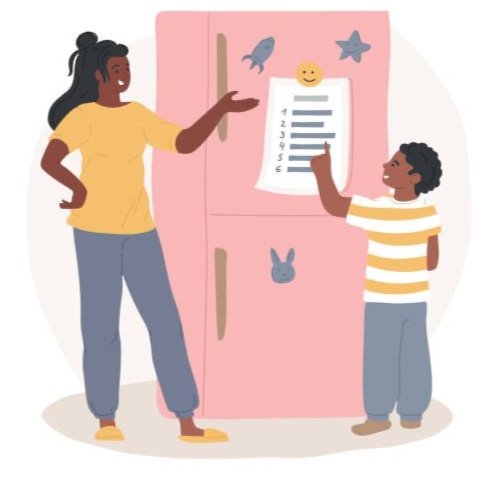What Can We Learn From Pathological Demand Avoidance?
What Can We Learn From Pathological Demand Avoidance?
Let’s start by talking about a term you may not hear often: Pathological Demand Avoidance, or PDA for short. PDA is a profile that falls under the autism and is characterized by an extreme avoidance of everyday demands and expectations. People with PDA are not just being difficult or stubborn; they experience intense anxiety when they perceive a loss of autonomy, which drives their demand-avoidant behavior.
What makes PDA particularly interesting is how it presents in different people, especially those who may be better at masking, like girls, women, and minorities. Masking refers to the effort people make to hide their differences in order to fit in. For those who mask, life becomes an exhausting balancing act of meeting societal expectations while suppressing their true selves.
How PDA May Present Across Ages and Identities
In young children, PDA might look like intense resistance to routine activities such as getting dressed or going to school. It often comes with behaviors like distraction, negotiation, or outright refusal.
In adolescents, especially those who are more prone to masking, it might show up as perfectionism, anxiety, or burnout from trying too hard to meet demands without appearing to struggle. They might comply outwardly but feel trapped and overwhelmed internally.
In adults, particularly those who are neurodivergent or part of marginalized groups, PDA can present as chronic procrastination, burnout, or the need to micromanage every detail of their lives just to feel in control.
Masking complicates things further. Women and minorities are often socialized to meet the expectations of others, which means they learn to mask early and intensely. They may appear to function well externally, but internally, they might feel immense distress, fatigue, or even resentment.
The Universal Need for Autonomy and Control
Here’s the thing: as humans, we all want to have a sense of autonomy and control over our lives. This need is particularly heightened for people with PDA, but it’s something we can all relate to.
We live in a world obsessed with rules, appearances, and expectations. We’re constantly told how things should be: how we should work, parent, eat, or even keep our homes. But have we ever stopped to question whether these rules and expectations are helpful—or even necessary?
Let me share a personal example. Growing up, I learned that the kitchen sink should always be empty and clean. Why? Because my mom grew up in Iran, where friends and family would stop by unannounced, and a woman’s worth was often tied to how well she kept her house. Fast forward to today: I’m 35, running a business, raising two young kids (one with special needs), and still putting immense pressure on myself to keep that sink spotless. Why? Because of a rule I internalized years ago that may no longer serve me.
This pressure to follow arbitrary rules can be especially heavy for folks with chronic illnesses, those who are neurodivergent, or people with limited financial means or social support. In these cases, the expectations can feel not only unhelpful but downright oppressive.
Maybe Non-Rule Followers Are Our Teachers
Here’s a thought: perhaps there are lessons to be learned from individuals who aren’t natural rule followers or people pleasers. Maybe those who instinctively resist authority when it doesn’t make logical sense to them are showing us something important. They might be teaching us how to slow down, reflect, and engage in ways that are less controlling and demanding—especially in relationships with a power difference, such as parent and child, teacher and student, or boss and employee.
What is Declarative Language?
If you look into the best interventions for individuals with PDA, you’ll likely come across something called declarative language, which is about sharing information and inviting collaboration rather than issuing commands. It helps reduce the power struggle that often triggers demand avoidance. Instead of saying, “Clean your room right now,” you might say, “I noticed your room could use a little tidying. Let’s figure out when might be a good time to do that.”
Declarative language can sound like:
“It looks like we’re running low on milk. What do you think we should do?”
“I wonder what might happen if we leave this here for too long.”
“It’s pretty chilly outside. I’m thinking a jacket might be a good idea.”
By framing things as observations or collaborative discussions, we offer a sense of control and reduce anxiety.
Resources for Learning More
If you want to dive deeper into PDA and declarative language, here are some great resources:
Books: The PDA Paradox by Harry Thompson and Declarative Language Handbook by Linda K. Murphy.
Websites: The PDA Society offers excellent information and support.
Occupational Therapy: Many organizations offer parenting or professional development workshops on using declarative language and understanding PDA.
Workshops: Many organizations offer parenting or professional development workshops on using declarative language and understanding PDA.
Services:
Final Thoughts
The world is full of rules and expectations that often go unquestioned. But maybe those who resist demands, those who push back against arbitrary authority, are showing us a different, more thoughtful way to live. They remind us that autonomy matters and that sometimes, slowing down and letting go of rigid expectations can lead to a more compassionate, flexible, and ultimately happier way of being.
So, the next time you feel frustrated by someone who refuses to follow the rules, pause and reflect. They might just be offering you an invitation to rethink whether those rules are worth following in the first place.
With love & gratitude,
Founder & Director




